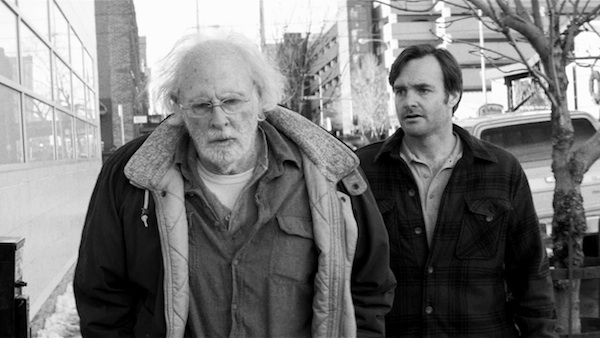He’s back.
I have a lot of respect and admiration for Alexander Payne, and I’m happy to add Nebraska to my list of his best films, a list that also includes Election and Sideways.
I like About Schmidt, find The Descendants well-made but not indelible, and appreciate the intent behind Citizen Ruth, but Payne achieves a high water mark with Nebraska that matches his work in Election and Sideways.
The storyline is simple. An old man receives a notice that he has won a million dollar sweepstakes prize, and everyone laughs at his foolishness except his younger son, who takes him from Montana to Nebraska despite realizing there is no jackpot to claim.
Woody Grant (Bruce Dern) is not particularly likeable, frequently confused, and an alcoholic. His wife Kate (June Squibb) and older son Ross (Bob Odenkirk) criticize the cantankerous old man, who keeps leaving home to walk to Lincoln, Nebraska to claim his prize.
Younger son David (Will Forte) takes stock of his own modest life and disappointments, listens to his father, and decides to take Woody to the sweepstakes headquarters.
The journey includes an unexpected side trip to Woody’s hometown and a reconsideration of the past that is revealing and inspires David to continue to give his father attention and dignity.
Among many interesting supporting performances, Stacy Keach is extremely good (at being very bad) as Woody’s onetime business partner, Ed Pegram.
What unfolds in this film is a delicate and powerful from of storytelling that is revealed through the interplay of characters so well-written and performed with such truth that the lessons emerging from the narrative are as close to universal and timeless as I am prepared to acknowledge may exist.
I’m not big on “universal” and “timeless” because those terms have been used most often to justify a particular white, male, Western view of the world.
But, I am big on Nebraska.
In a year marked by a lot of great films, Nebraska is a standout.
